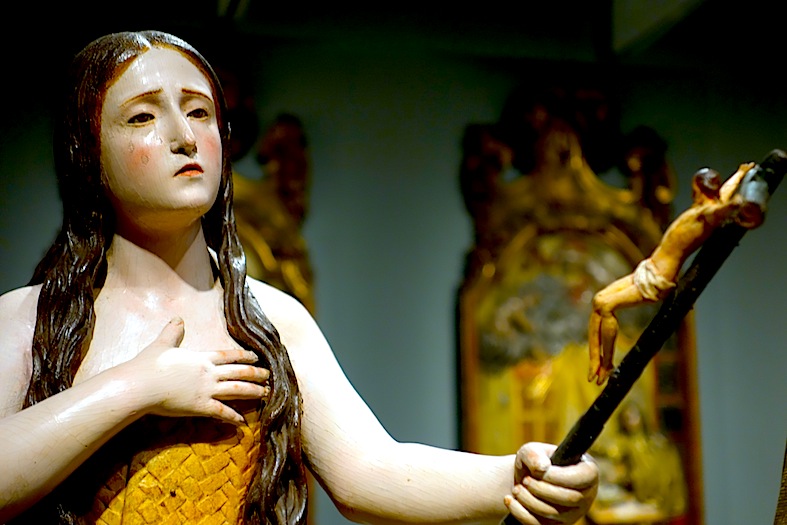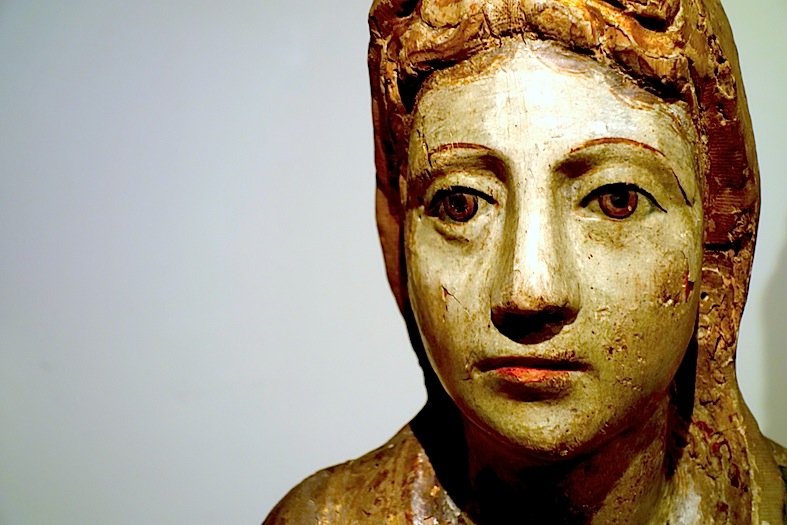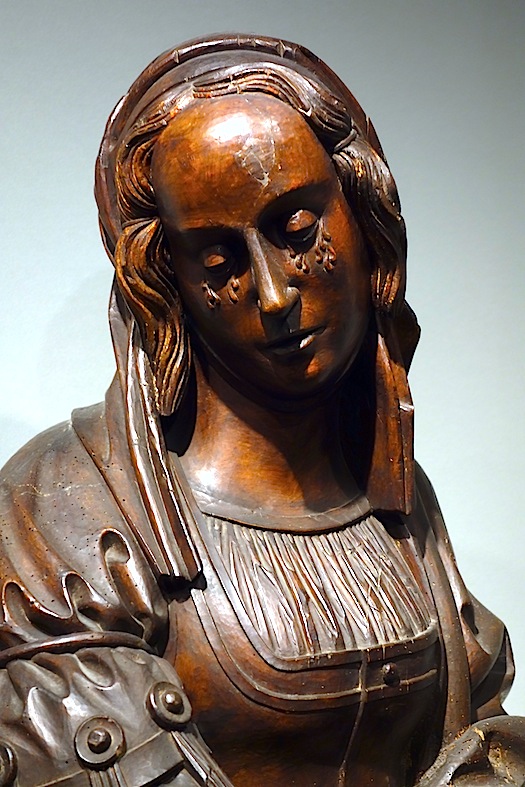Oh hello. Well, a while back you might have seen Rupert Christiansen’s Telegraph blog on the subject of women in theatre. If not, here it is:
I’m not going to get rude about Mr Christiansen’s opinion. I don’t know the guy, and there’s enough rudeness on your internet already. If you’ve come here for invective: fuck off.
Yes. Sorry. Instead, maybe I’ll just lay out my own responses to Mr C in bullet-point form to get them out of the way as quickly as possible:
– I don’t know anyone who thinks there’s a conspiracy against women in theatre, or indeed, in any other walk of life. A conspiracy isn’t required. Chauvinism prevails, it’s in plain sight, it’s a massive problem for everyone, it needs debate, discussion and progressive thinking to effect a positive change, and you can’t negate it just by listing a random bunch of high-profile exceptions.
– Um
– That’s it.
Any road, Mr C’s wrongitude got me thinking. He cites Phyllida Lloyd’s aim of seeking out stories and settings with relevance to women’s lives, something I very much admire. I wondered if I had my own strategies? I’ve been thinking about this as a writer for some time. Sometimes making these things public gives you a better chance of sticking to your guns. So here goes.
1. When I’m writing, I always think “Why not a woman?”
Full, unsurprising disclosure: when you’re a man, you often want, and sometimes need, to write about men. There are plenty of stories in my catalogue where that’s partly or wholly the case. Second unsurprising disclosure: Yes, I’m prejudiced, in certain ways. I think it’s inevitable. I’m not about to blame anyone… but an accumulation of environments, behaviours and stereotypes means that whether I like it or not, sometimes my instincts are biased towards masculinity. I reckon it’s just part of growing up in the last century – and also being a complete geek for genre, which tends to deal in quick, recognisable imagery. All the more reason to actively question those instincts.
So when drawing up any new story, situation or character, my current process is to ask: “Why not a woman?” And if I don’t have a good clear reason otherwise, I’ll write for a woman.
That might sound tokenistic. I hope it’s not. In the short time I’ve been following this principle, I feel it’s improved my writing no end. Put simply, it’s meant being open to more ideas, emotions and experiences. And I’d hope, somehow, in thinking more about women’s lives I’ve been led to write a lot better about men’s.
There’s another twist to this, of course, particularly relevant to performance and theatre: just because I’ve written a character as a man, there’s no reason he has to be played by a man. Sleepdogs are currently happily chatting away about such casting possibilities for our upcoming Dark Land Light House project – although we know that thanks to British theatre’s ongoing obsession with mimesis, any deviation from the norm is still seen as eccentric at the very least. You’re more likely to get comments about women playing men than you are about a man playing a dog.
2. Any answer to 1. that begins “Because usually…” is NOT A VALID RESPONSE.
My big theory – which I’ll bore you with in more detail some other time – is that UK theatre has never really experienced a post-punk moment. Generally speaking plays are expected not to scare anyone, make 100% narrative sense, and have what’s known as a ‘clear voice’. Of course the risk is that this can produce the kind of stuff where a) the theatre-makers have an idea, then b) that idea is communicated very efficiently by professionals and c) nothing much else happens.
This isn’t a whinge (honest) and I’m not arguing to sweep away whole areas of tradition; but I don’t want to be making work for a dying audience. So no matter what it relates to, I figure the phrase “Because usually…” is hot hairy death for the kind of stuff I’d like to see.
“Because usually, in Victorian England, the men would have been the ones to – ”
I mean, the voice inside your head does this constantly, doesn’t it? You get bogged down in expectations related to ‘realism’. Worried that your audience will get slapped out of the story by the sudden presence of a character who could be deigned not to look, or sound, like they belong. When the fact is that if your story is strong enough, no-one who matters is going to give a shit. They might even find it intriguing.
“Because usually, a woman wouldn’t – ”
And out of context, doesn’t it sound horrible? Just obscene. This last, above, is directly lifted from something I’m working on right now, where in all likelihood a young woman wouldn’t have been present at a certain place or time (in this case, a male prison in the deep south of the USA, in the late 1940s.) But really, who’s going to object? In a universe capable of generating something like the orchid mantis or a brown dwarf or the music of FKA Twigs, who’s going to complain about a woman being somewhere she just about feasibly might not have been in the immense sweep of human history? Idiots, that’s who. “Because usually…” is simply not a good enough reason to exclude her.
3. When 1. and 2. are dealt with, what else is there?
There’s nothing I can say on the subject of female characters that hasn’t been said a lot better by Joss Whedon – but once I’ve asked ‘why not’ and kicked ‘because usually’ down the stairs, what else should I watch out for? For instance: I worry my women are often deadpan because I want them to remain ‘a bit mysterious’; something I don’t so regularly apply to my men. I worry that I usually make my female protagonists a useful combination of driven, stoical and sparsely eloquent. A random sample of my last 5 scripts certainly seems to suggest that female characters tend to question and define, while male characters embellish and announce. This is the kind of stuff I need to keep checking up on. Sometimes it’s written that way because I genuinely like the dynamics it allows. But other times it’s because I haven’t stopped to ask how else it could play out.
This process, this line of questioning won’t ‘solve’ anything, I know, not on its own. I’m a white middle-class western man, and the fact remains that my voice is the prevalent kind, no matter what it might be saying. But the fact also remains that I’m a white middle-class western man who is mostly bored by stories about white middle-class western men. I’m drawn more and more to complexity, towards trying on other people’s ideas for size, to writing about lives I could never, in a million years, fully understand.
I once heard it said that creative organisations, when having meetings, should put ‘diversity’ at the top of the agenda. Literally – first item, boom. When diversity gets shunted down the list, way past discussion about office supplies and parking spaces, your meetings can end with the issue barely touched upon, if at all. I like the suggestion it should come much earlier. I like it because to my mind, talking to and working with different people is essential to having different ideas. And different ideas keep you alive.
(Pictures: a whole bunch of Marys from Museu Frederic Marès, Barcelona.)


